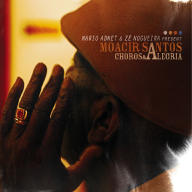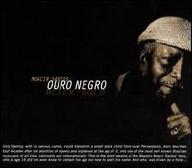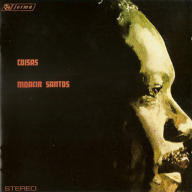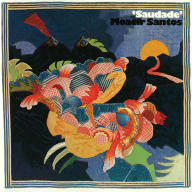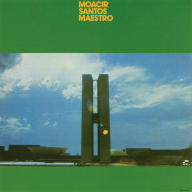Santos had contact with music very early in his life in the local band Flores do Pajeú (Pernambuco), taking classes with bandmaster Paixão and joining the group at 14 on the saxophone, clarinet, trumpet, banjo, guitar, and drums. Leaving home two years later, he played around northeastern Brazil until 1943, when he got a break at the Rádio Clube de Pernambuco. Having joined the Band of the Military Police of Paraíba in 1945, Santos replaced Severino Araújo (who had being invited to work in Rio de Janeiro) in the jazz band (a generic and common denomination at the time, not having to do with the repertory) of Rádio Tabajara da Paraíba, as a tenor/clarinetist. Two years later, he was appointed the conductor of the band and, in 1948, he moved to Rio de Janeiro, where his first job was at the gafieira Clube Brasil Danças, remaining there for 18 years as saxophonist and then as conductor/arranger. One month after his arrival in Rio he joined Rádio Nacional as a solo tenor of the Orquestra do Maestro Chiquinho, where he would work until 1967. Having studied under Hans Joachim Koellreutter's guidance, to whom Santos became an assistant, in 1951 he was invited by Rádio Nacional's A&R director, Paulo Tapajós, to be one of the regular conductors/arrangers of the cast.
In 1954, Santos went to São Paulo, where he directed the orchestra of TV Record. Two years later, he returned to Rio de Janeiro, resuming his work at Rádio Nacional, also becoming Ary Barroso's assistant in the A&R direction of the Rozemblit recording company, and conductor at Copacabana Discos. At the peak of the success in Brazil, Santos released in 1965 his first solo album, Coisas. In the same year, he wrote the soundtrack of the film #Love in the Pacific, having been honored by the Brazilian government with the payment of travel expenses to be present at the debut in New York, NY. In 1966, he was appointed as a member of ASCAP and in the next year he left Rádio Nacional. Moving to the U.S., Santos settled in Pasadena where he gave music classes at home until he was discovered by Horace Silver. In 1985, he opened with Radamés Gnattali, in Rio de Janeiro, the I Free Jazz Festival. In 1996, he was decorated by the President of the Republic of Brazil as Oficial da Ordem do Rio Branco. In the same year, Santos was paid tribute at the Brazilian Summer Festival (Ford Theater, Los Angeles, CA). His original arrangements for several of his compositions were transcribed by Mário Adnet and Zé Nogueira and recorded on the double-CD Ouro Negro (2001), which had the participation of Milton Nascimento, João Bosco, Joyce, João Donato, Djavan, Gilberto Gil, Ed Motta, and Santos himself. The album was launched with a show at the João Caetano theater, which was presented again at the Free Jazz Festival of that year. ~ Alvaro Neder, Rovi
|
1
|
|
Coisa No. 6 |
|
2
|
|
Coisa No. 4 |
|
3
|
|
Nana |


